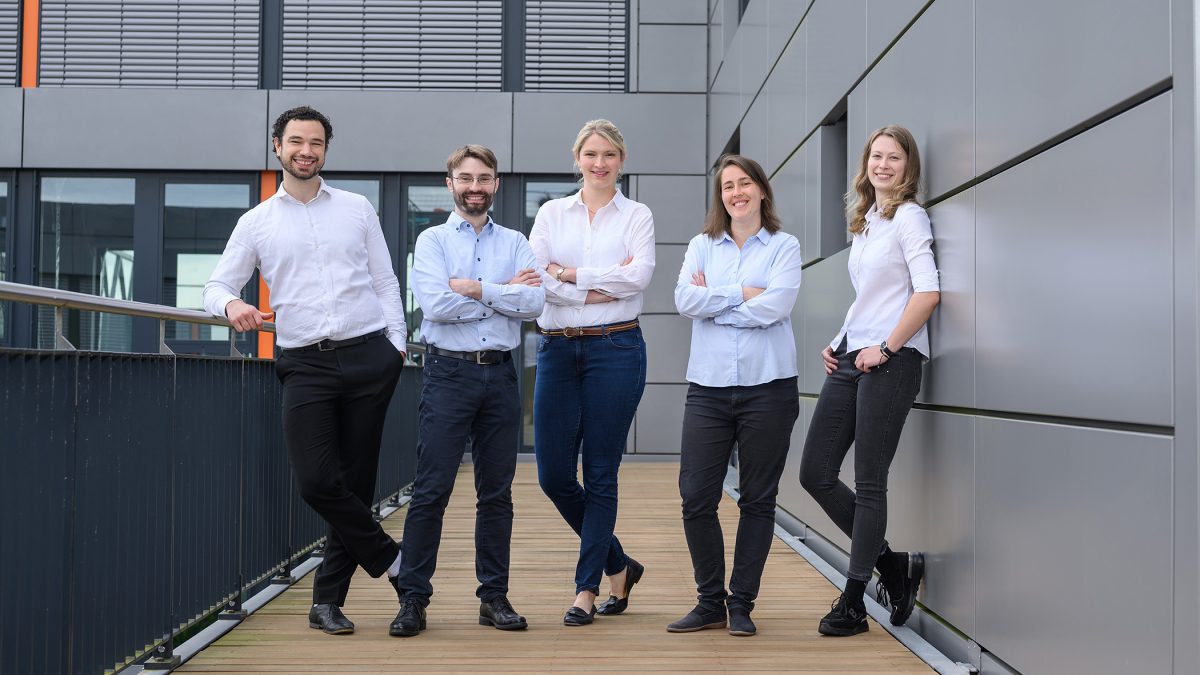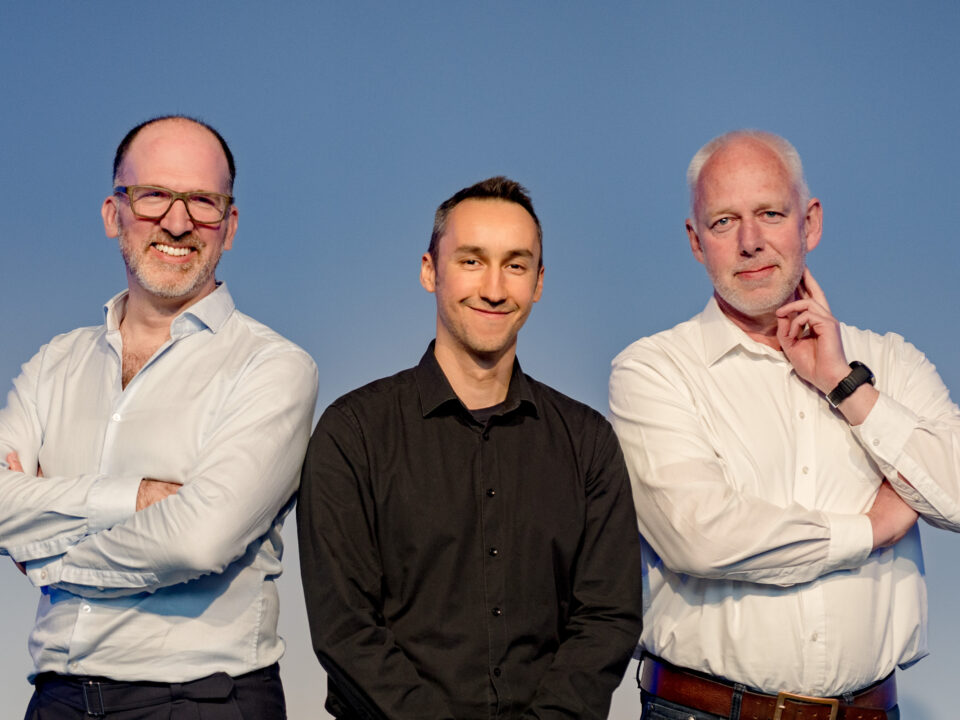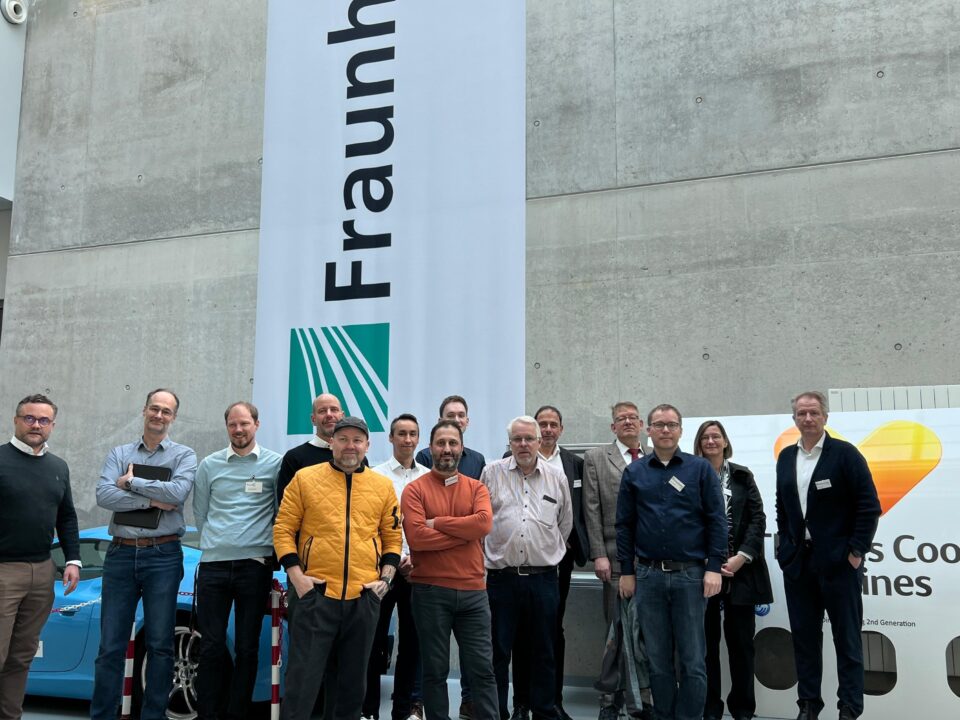
Marble Imaging: Monitoring our Planet with Unprecedented Earth Observation Precision
08.03.2024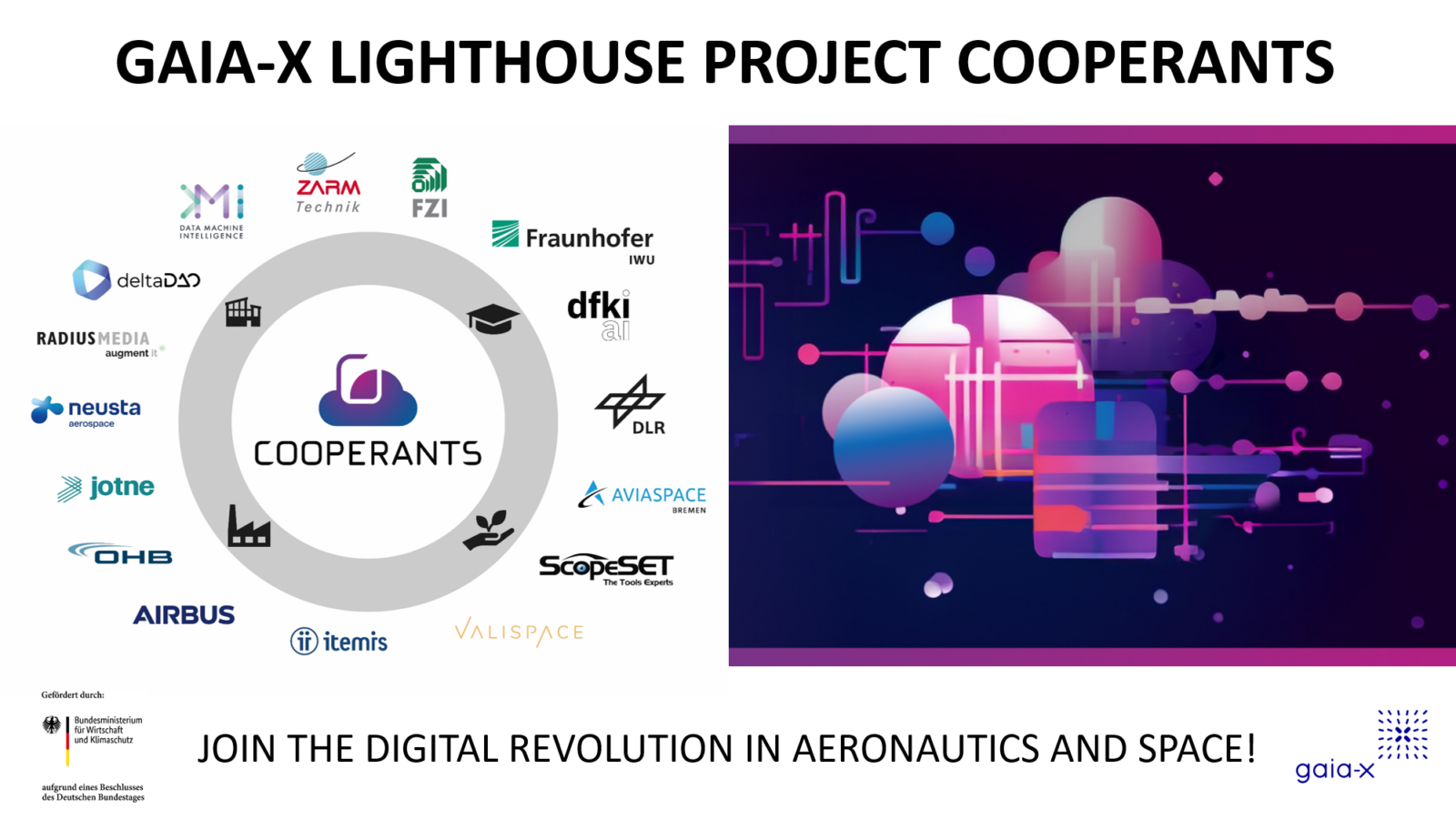
Fourth COOPERANTS Consortium Meeting
14.03.2024In the face of complex industrial challenges, where magnetic fields and sophisticated data processing collide, PhySens GmbH is reshaping the narrative of precision and efficiency. Motivated by their experiences working on the ESA Rosetta mission, these scientists-turned-entrepreneurs are on a quest to apply their magnetic field data processing techniques to diverse sectors, from transportation to infrastructure, with invaluable support from the ESA BIC Northern Germany.
Bringing Science and Business Together
PhySens co-founders, Katharina Ostaszewski and Philip Heinisch, knew they were onto something big with their magnetic field data processing methods while working on the ESA Rosetta mission as colleagues at the Technical University Braunschweig. Seeing their innovative methods at work sparked an idea: to apply their expertise to real-world industrial challenges. It was during this phase that Henriette Struckmann, intrigued by their work and armed with a business administration background, became an essential part of the team. Her expertise complemented the scientists’ ingenuity, forming the foundation of PhySens’ multidisciplinary approach. Since then, the PhySens team have welcomed two new members onboard – Lea Baschanow joined in July 2022 as a data analyst, and Raui Ghazaleh joined in February 2023 as a software engineer.
A Path to Success
In June 2020, their vision received a significant boost when PhySens was awarded an EXIST startup grant of 100,000 EUR from the Federal Ministry of Economic Affairs and Energy and co-financed by the European Social Fund (ESF) of the European Union. This turning point marked the official birth of PhySens GmbH in January 2021. United by their passion for magnetic field technology, as well as financial support from the startup grant, the trio embarked on their entrepreneurial journey with a shared vision: to revolutionise industries through their innovative methods. Shortly after this, the PhySens team took part in the INNOSpace Masters competition. Their impressive performance included securing the first prize in the ESA BIC Challenge for their contactless current sensor and winning in the DB Netz AG Challenge with their infrastructure monitoring sensors. This success not only brought them recognition, but also valuable support from the ESA BIC Northern Germany as part of their business incubation programme for young startups.
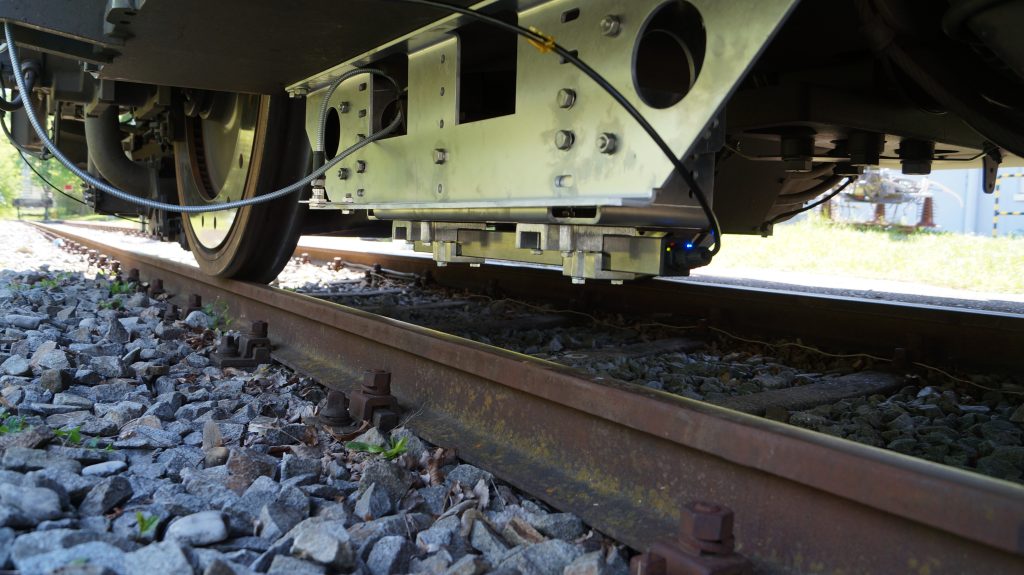
PhySens technology used in assessment of rail vehicles, credit: PhySens GmbH.
Innovative Solutions and Boundless Applications
The PhySens magnetic odometry technology, a marvel in the railway sector, offers a non-contact method for precise speed determination of all rail vehicles. Overcoming weather and skid-related challenges, this technology ensures accurate speed readings, facilitating optimised routes and safe train operation. Additionally, by employing self-developed IoT sensors and cloud-based data analysis, PhySens has enabled real-time assessment of rail infrastructure, identifying issues earlier, thus preventing delays. This innovation has not only optimised railroads but has also played an important role in train protection mechanisms, efficiency and an uninterrupted travel experience. Their efforts have gained recognition and support from Deutsche Bahn, with whom they collaborate to test and refine their technologies.
Beyond railroads, PhySens magnetic current sensors has welcomed a new era in predictive maintenance, empowering industries from ventilation to elevators to production systems. Their intelligent measurement system, driven by flexible sensor technology, not only optimises energy consumption, but also opens avenues for intelligent load management in various settings. Additionally, they design scientific instruments for cutting-edge research ranging from cancer treatment to satellite calibration systems. These innovations, born from a fusion of space technology and practical applications, has set PhySens apart in the competitive business landscape.
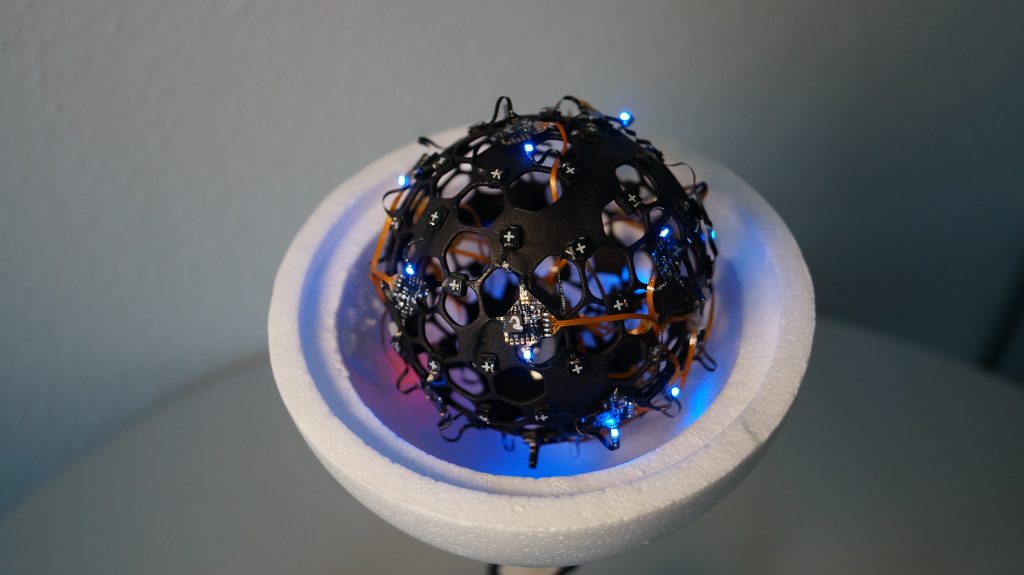
High-precision, spatially resolved magnetic field measuring instrument for medical and bioscience research, credit: PhySens GmbH.
Connecting Through Space
PhySens journey is unique, not just because of their innovation, but also due to their invaluable connection to space technologies through ESA BIC Northern Germany. As Henriette Struckmann shared, “this year at INNOspace Masters Highlight Conference, we had the chance to speak to some ESA representatives, and we discovered that the space connection we have gives us credibility because people trust these technologies. Space technology is known to be robust and well-made. We can see how highlighting this connection to space increased our credibility to other people and companies.”
Reflecting on their time as a startup with the ESA BIC Northern Germany, she emphasised the community spirit and support throughout their incubation experience, “… the main highlight for us are all the networking events that we can be part of during our incubation time with ESA. We can get in touch with people from the aeronautics and space sector. Not only that, but the coaching and workshops that are part of the programme are amazing. I definitely recommend them.”
A highlight of their year was being awarded third place in the ESA Technology Transfer Ideas Competition. The prize was presented to PhySens during the Space Tech Expo Europe 2023 by Géraldine Naja, ESA Director of Commercialisation, Industry and Procurement. The award was a great way to recognise the work and efforts of the PhySens team and to round off their time as an ESA BIC Northern Germany incubatee.
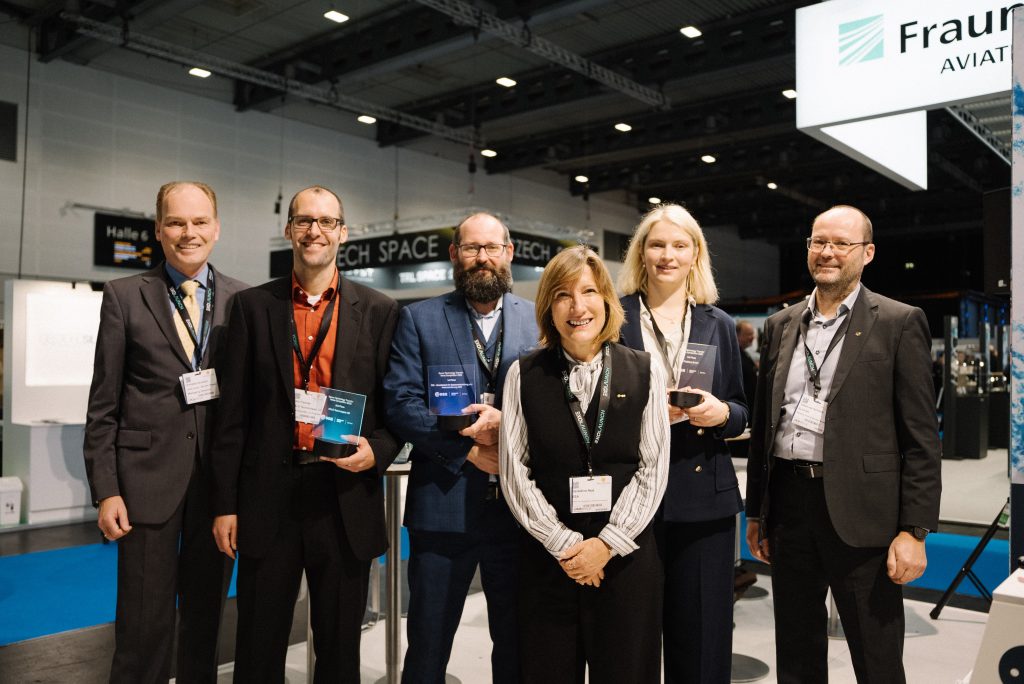
Dr Andreas Kanstein (cesah), representatives of HALO Technologies, Clemens Espe (GSI), Géraldine Naja (ESA), Henriette Struckmann (PhySens), Johannes Schmidt (EurA AG) ) (from left to right), credit: AVIASPACE BREMEN e.V.
These words echo the sentiment shared by numerous startups that have benefited immensely from the ESA BIC Northern Germany, highlighting the programme’s crucial role in nurturing innovation and fostering invaluable industry connections.
Future Horizons
Looking ahead, PhySens is steering towards an ambitious future. With two significant projects underway, one in partnership with a company in Switzerland and another in Germany, PhySens is poised to push the boundaries of magnetic technologies. Their goal is clear: to expand their clientele, reaching out to SMEs and production companies where their techniques and sensors can revolutionise operations. As they continue their journey, PhySens is shaping the industry with their innovative solutions, showcasing that with precision, passion and persistence, the future is not just magnetic – it’s boundless.
#SPACEmeetsRAIL
About ESA BIC Northern Germany
The Incubation Centre of the European Space Agency in Northern Germany (ESA BIC Northern Germany) is headquartered jointly with the Bremen aeronautics and space industries association at the Bremer Innovations- und Technologiezentrum BITZ as well as the Digihub Industry – two of the largest innovation and technology centres for high-tech companies and startups in the German federal state of Bremen. The ESA BIC Northern Germany brings new startup opportunities to the region and thus strengthens the aeronautics and space sector in the German federal state of Bremen. AVIASPACE BREMEN e.V. supports the incubatees with its network, public relations work and targeted coaching not only during the incubation period, but also afterwards as alumni. STARTHAUS Bremen & Bremerhaven s the central point of contact in the Bremen startup ecosystem and supports the startups on all issues relating to business development and financing. The ESA BIC Northern Germany is managed by Anwendungszentrum GmbH Oberpfaffenhofen (AZO), an international networking and branding company for the European space programmes that also manages ESA BIC Bavaria with three locations in southern Germany.
Since 2021, ESA BIC Northern Germany has also been offering its service to space-related startups in Schleswig-Holstein. The Technikzentrum Lübeck with GATEWAY49, AviaSpace Bremen and AZO jointly operate this extension of ESA BIC Northern Germany. There are also plans to extend ESA BIC Northern Germany to the northern German federal states of Hamburg, Lower Saxony, Mecklenburg-Western Pomerania and Berlin-Brandenburg.
Technical support of the ESA BIC Northern Germany, is offered by Fraunhofer IFAM, German Research Center for Artificial Intelligence DFKI, Alfred-Wegener Institute for Polar Research AWI, Bremen University, Center of Applied Space Technology and Microgravity ZARM, Airbus Group, ArianeGroup, AES Aircraft Elektro/Elektronik System, DSI Aerospace, and OHB.





